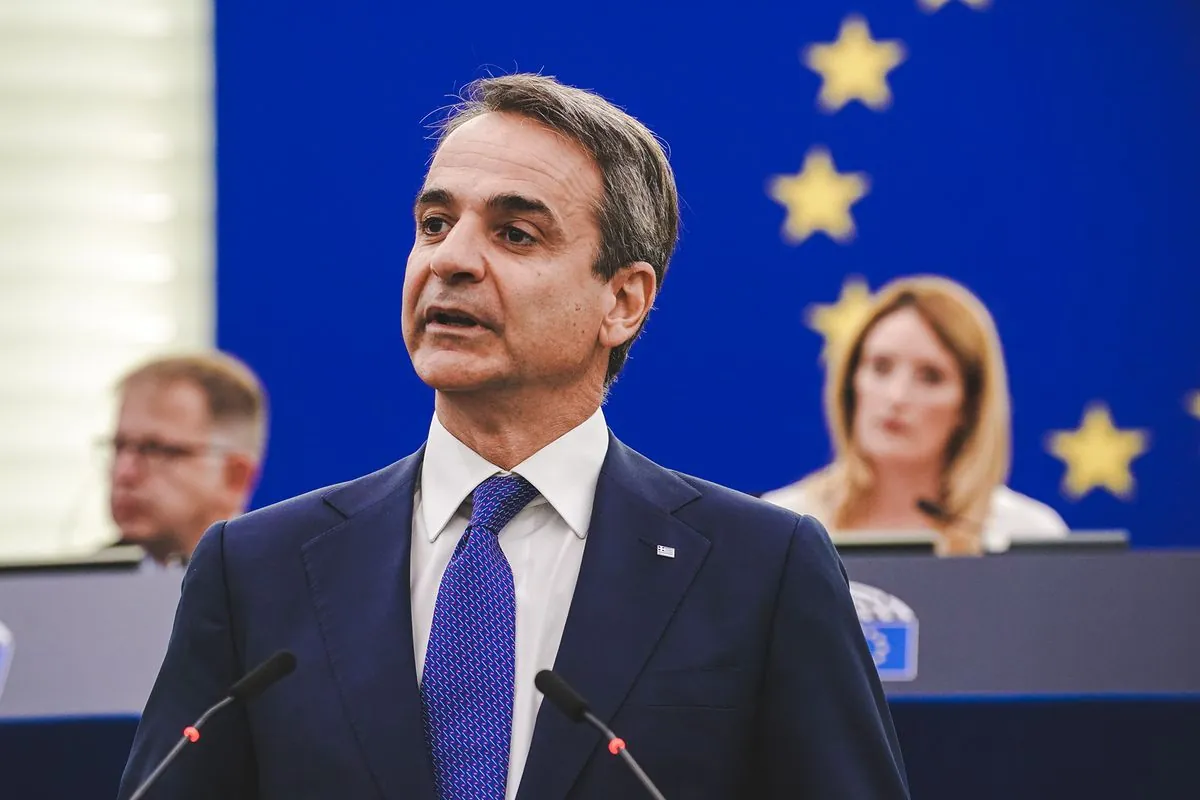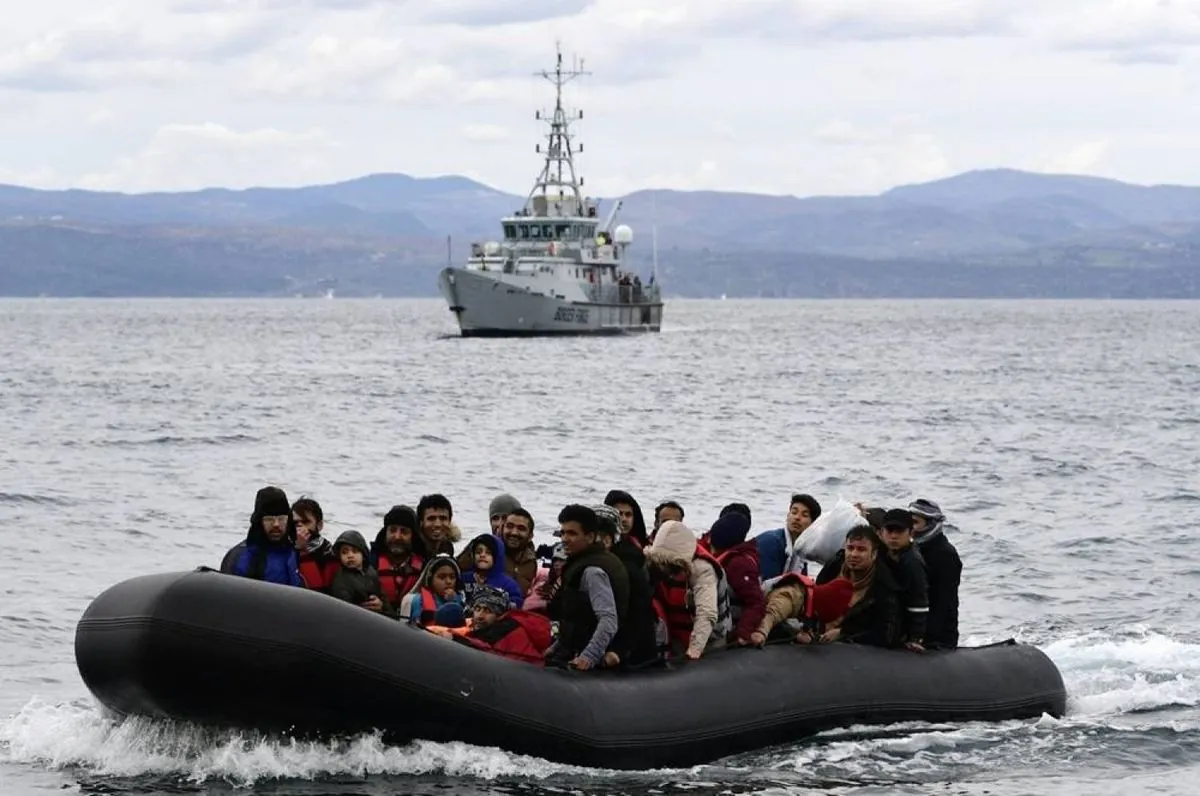Greek PM Urges EU Unity on Migration, Opposes Schengen Disruption
Greek Prime Minister Mitsotakis calls for a unified European approach to migration, rejecting unilateral border control measures. He emphasizes the need for fair compromise and protection of EU's external borders.

In a recent radio interview, Kyriakos Mitsotakis, the Greek Prime Minister, addressed the pressing issue of increased migration flows in Europe. His comments come in response to Germany's announcement of stricter border checks, set to begin on September 16, 2024, for an initial six-month period.
Mitsotakis firmly stated that unilaterally dismantling the Schengen zone is not an appropriate solution to the migration challenge. The Schengen Area, established in 1985, allows free movement across 27 European countries, with Greece joining in 2000.
"The response cannot be unilaterally scrapping Schengen and drop the ball to countries which sit at Europe's external borders."
The Greek leader emphasized the need for a "fair compromise" among all European nations, highlighting the importance of protecting Europe's external borders. This stance aligns with the broader EU strategy, including the European Agenda on Migration introduced in 2015 and the New Pact on Migration and Asylum proposed in 2020.
Greece, as a key entry point for migrants, has firsthand experience with the challenges of managing external borders. The country's unique position underscores the importance of collaborative efforts in addressing migration issues.

The ongoing debate reflects the complex nature of EU migration policies, including the Dublin Regulation and the Common European Asylum System (CEAS). These frameworks aim to harmonize asylum procedures across member states, but their effectiveness has been questioned during periods of increased migration.
Mitsotakis' call for unity echoes the EU's struggle with "burden-sharing" in migration management. This concept has been a point of contention, particularly since the European migrant crisis began in 2015.
As the EU grapples with these challenges, the role of agencies like Frontex, established in 2004 to assist in managing external borders, becomes increasingly significant. With the EU's external borders spanning over 50,000 kilometers, the need for a coordinated approach is evident.
The Greek Prime Minister's stance reflects a broader desire for a balanced and unified European response to migration, emphasizing cooperation over unilateral actions that may undermine the principles of free movement within the Schengen zone.


































